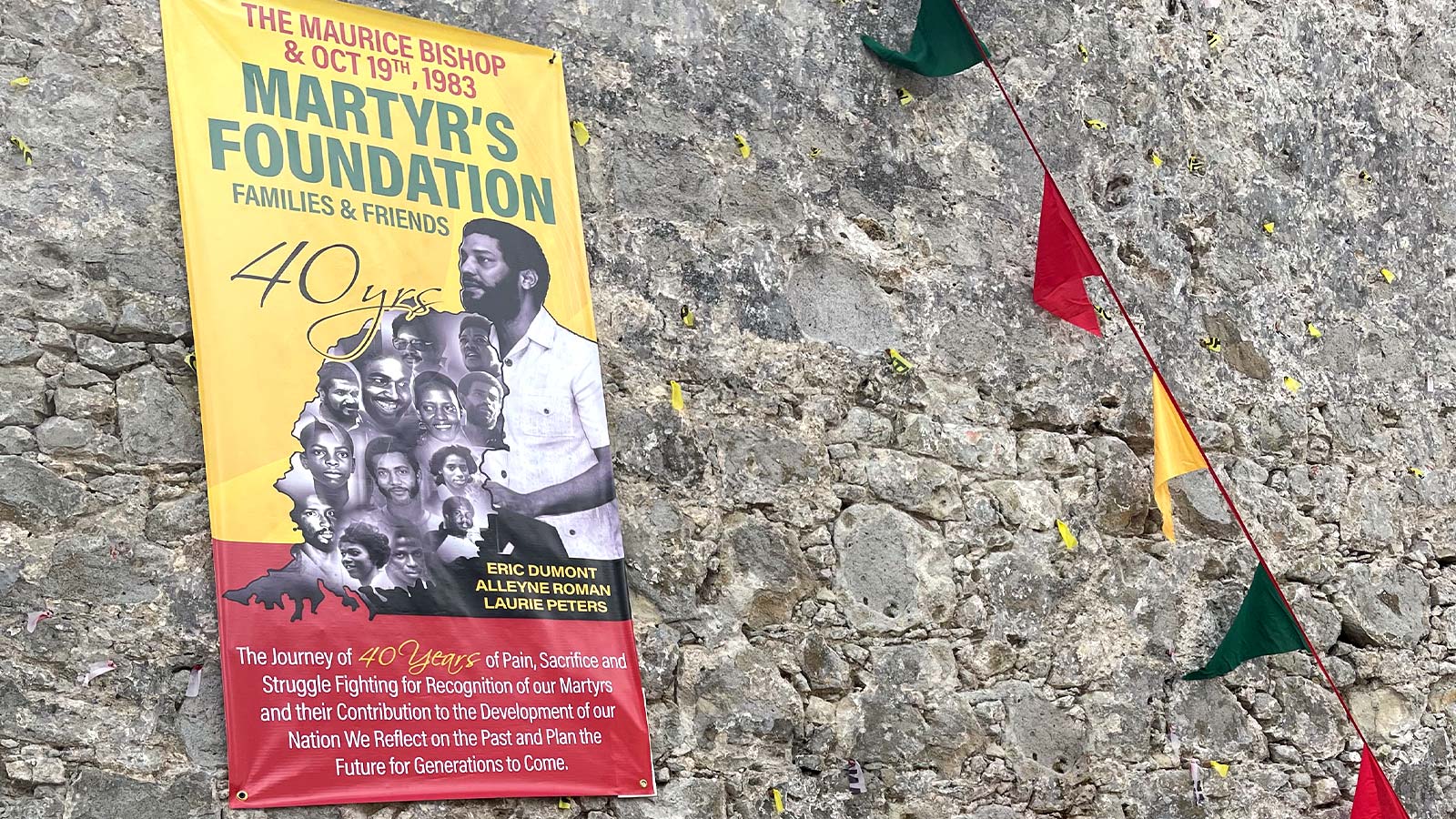By Herb Boyd —
Special to IBW
Finding the most exhilarating moment in four days of attendance at a tribute to Maurice Bishop, a former prime minister of Grenada who was mercilessly assassinated on Oct. 19, 1983, is daunting because each salute to the slain hero was exceeded by the next. Whether it was the initial commemorative speech by Dr. Ron Daniels, president of the Institute of the Black World (IBW), or an arousing sermonette by the Rev. Dr. Herbert Daughtry, who along with his grandson, Lorenzo, was part of the U.S delegation led by Dr. Daniels, or Prime Minister Dickon Mitchell’s heartfelt words delivered at the National Stadium, all of them were sterling reflections on Bishop and the national holiday. But they may have been surpassed by the beams of the nineteen spotlights that lit up the night sky on St. George’s waterfront. A beam illuminated the sky above the hundreds gathered there, many of them hoisting their flaming candles or contributing their bright cell phones to the memory of Bishop and the fallen martyrs. The beams blended and embellished the moonlight and a blinking, circling drone that documented the scene.
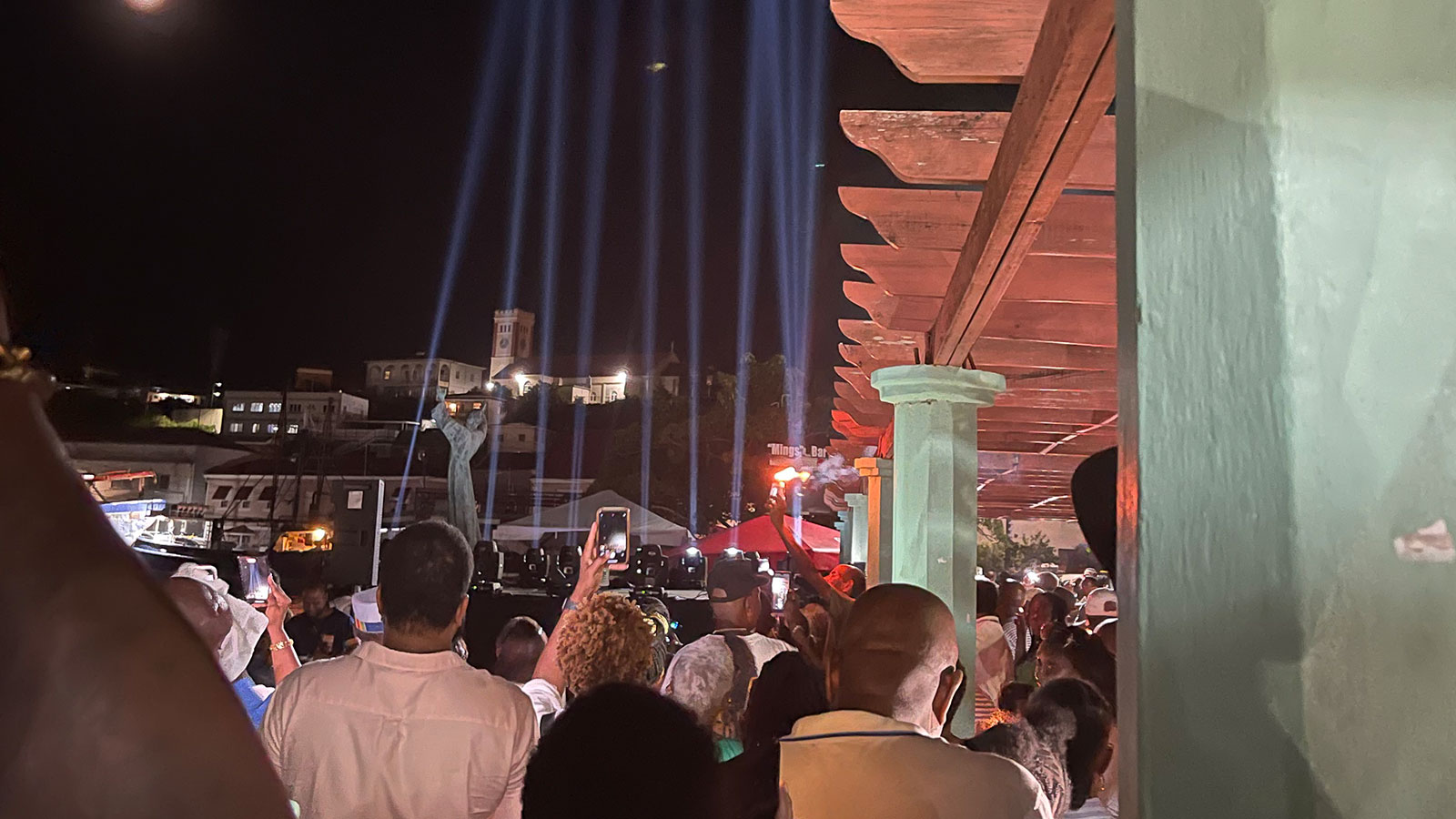
St. George’s, Grenada October 19, 2023 (Photo by Herb Boyd)
Speeches by journalist and Black Star News publisher Milton Allimadi and Rev. Daughtry were testimonies that moved the crowd and set the stage for a recorded speech Bishop delivered just before his death. His words rose from the speakers and merged with the beams and they resonated with the same brilliance of oratory that he shared with a crowd at Hunter College in the summer of 1983. He quoted Lincoln about a government “of the people, by the people and for the people” but added, “To us, democracy is much, much more than just an election.”
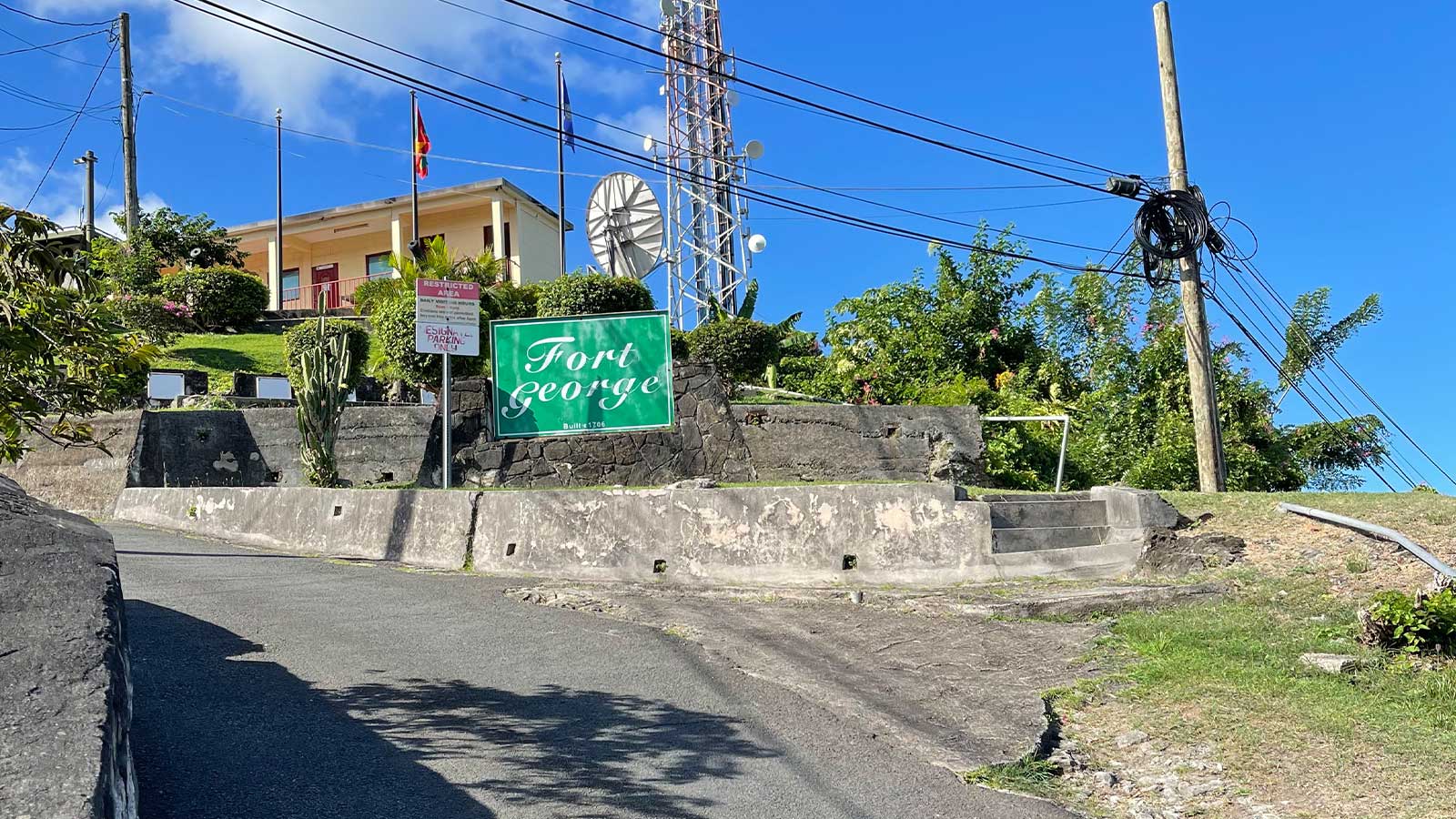
Fort George, St George’s, Grenada (Photo by Herb Boyd)
Earlier in the day designated a national holiday the first on the fortieth anniversary of the slaughter, when practically all the businesses except Kentucky Fried Chicken were closed, a contingent of family members of the martyrs and friends bore wreaths to be placed at Fort George (back then Fort Rupert) where the executions had occurred. There was a steady flow of unforgettable impressions from Angela Bishop, Maurice’s widow, Dr. Terrence Marryshow, and David Abdulah as wreaths were placed against a wall, one like many at the fortress which was undergoing reconstruction, and it was almost tearful watching Andy Bain place his wreath for his father, Norris. Bain is a superb pianist, a talent he fully exhibited during the ceremony at the stadium where he accompanied the vocalist Randal Robinson.
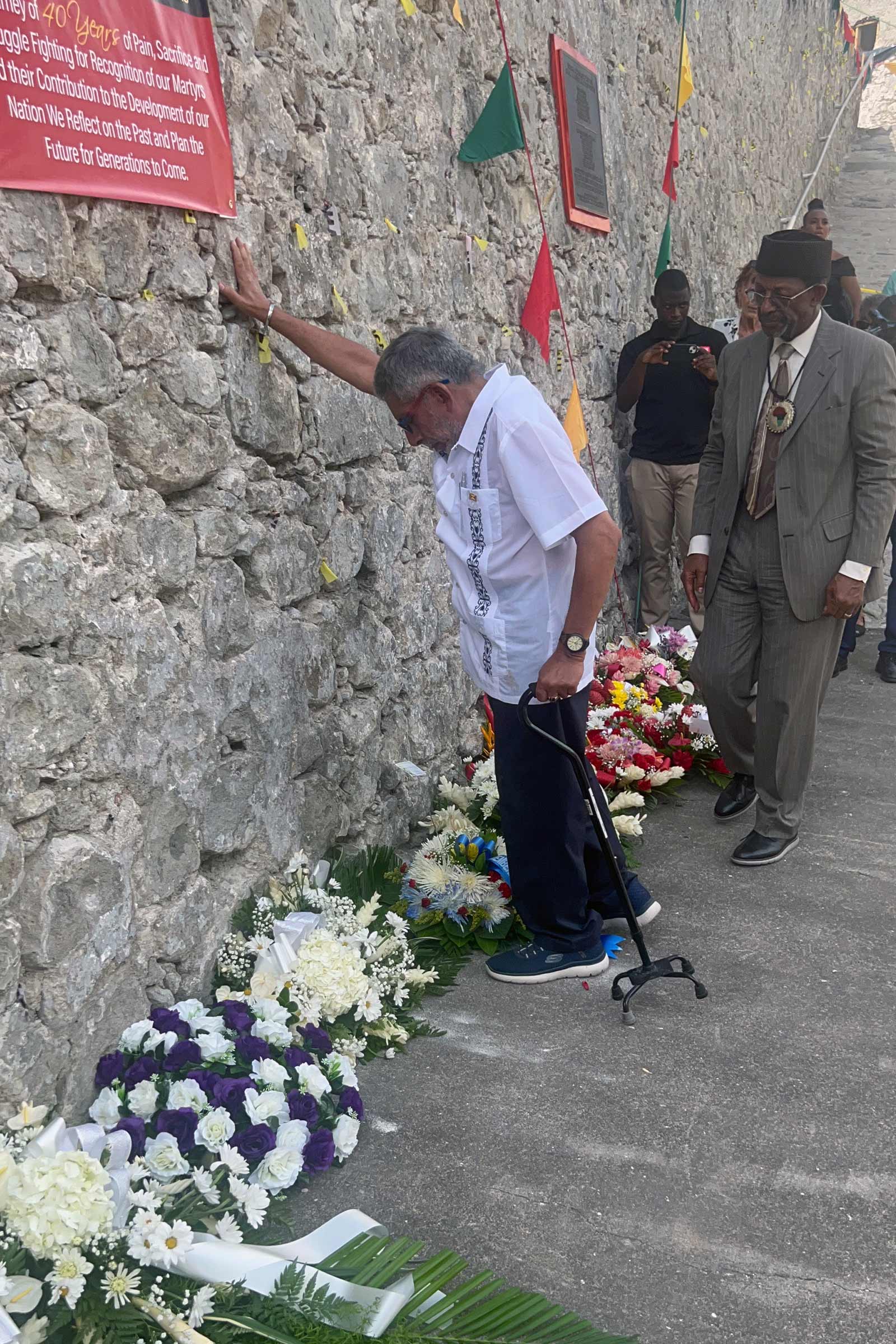
Don Rojas and Dr. Ron Daniels place wreaths at the wall where Maurice Bishop and the other Oct.19th martyrs were assassinated.
Topping off the visit, the U.S. delegation that included Dr. James Early, Dr. Claire Nelson, and Mr. Abdulah was invited to meet with Prime Minister Mitchell and later they shared how impressed they were about his maturity and understanding of Grenada’s domestic conditions and place in the global economic and political realms. At 46, the prime minister embodies many of the dreams and aspirations of other notables who were taken from us before their fortieth year–Malcolm, Martin, Medgar, and Maurice–as well as some of those, such as Brenda Baptiste, who have personal memories of the revolutionary past.
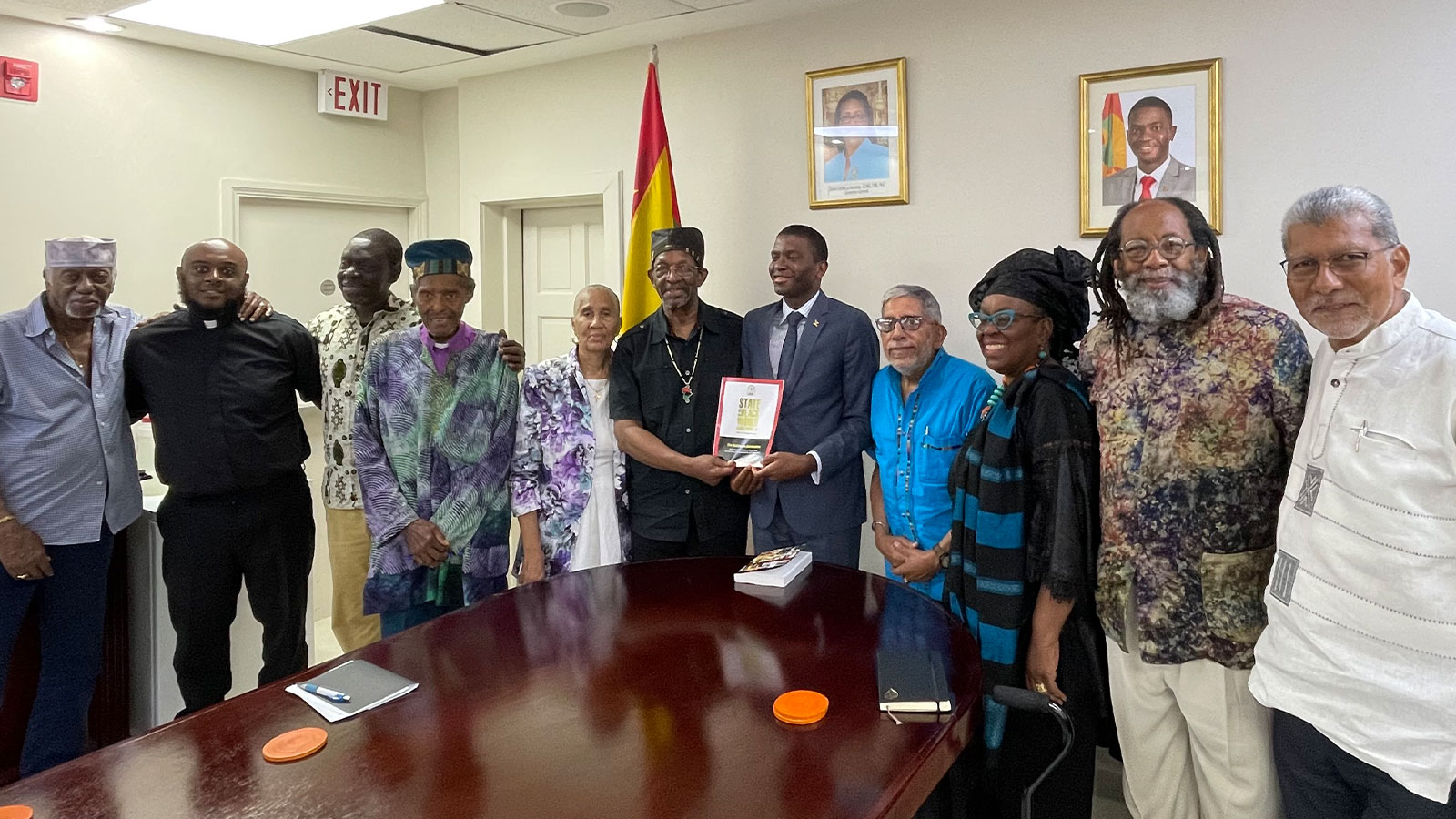
IBW delegation meeting with Grenada PM Dickon Mitchell Oct 2023 (Photo by Herb Boyd)
Ms. Baptiste, a multimedia specialist, recounted some of her memories of those glorious and subsequently horrendous days as she chaired a panel where elders exchanged their thoughts with a roomful of young students. During the Q&A session, the students had a battery of queries, and most of them were directed to Don Rojas, asking him about various aspects of what happened back when he was Bishop’s press secretary. It was clear they had done their homework, as Rojas observed, and he handled them with the delicacy by which they were delivered. Among the last surviving members of Bishop’s cabinet, Rojas narrowly escaped the mob that was told to shoot him on sight.
A passionate resolve emanated from the students, and there was every indication that this was just the beginning of their curiosity. One of them, who told the audience about a painting she had seen that captured the historical incident, personified the overall interest and promising commitment of the young people. If this lively exchange of information entices further study of the life and legacy of Bishop and other legends, then one of the main objectives of the days of celebration will be accomplished.

